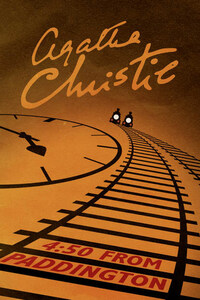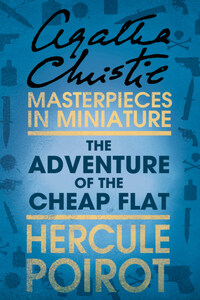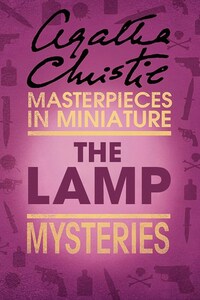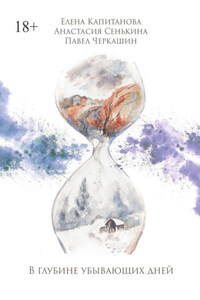Published by HarperCollinsPublishers Ltd
1 London Bridge Street
London SE1 9GF
www.harpercollins.co.uk
First published in Great Britain by Collins, The Crime Club 1957
4.50 From Paddington⢠is a trade mark of Agatha Christie Limited
and Agatha Christie® Marple® and the Agatha Christie Signature are
registered trade marks of Agatha Christie Limited in the UK and elsewhere.
Copyright © 1957 Agatha Christie Limited. All rights reserved.
www.agathachristie.com
Cover by juliejenkinsdesign.com © HarperCollins/Agatha Christie Ltd 2016
Agatha Christie asserts the moral right to be identified as the author of this work.
A catalogue copy of this book is available from the British Library.
This novel is entirely a work of fiction. The names, characters and incidents portrayed in it are the work of the authorâs imagination. Any resemblance to actual persons, living or dead, events or localities is entirely coincidental.
All rights reserved under International and Pan-American Copyright Conventions. By payment of the required fees, you have been granted the non-exclusive, non-transferable right to access and read the text of this e-book on screen. No part of this text may be reproduced, transmitted, down-loaded, decompiled, reverse engineered, or stored in or introduced into any information storage and retrieval system, in any form or by any means, whether electronic or mechanical, now known or hereinafter invented, without the express written permission of HarperCollins.
Source ISBN: 9780008196585
Ebook Edition © December 2016 ISBN: 9780007422357
Version 2017-04-11
Mrs McGillicuddy panted along the platform in the wake of the porter carrying her suitcase. Mrs McGillicuddy was short and stout, the porter was tall and free-striding. In addition, Mrs McGillicuddy was burdened with a large quantity of parcels; the result of a dayâs Christmas shopping. The race was, therefore, an uneven one, and the porter turned the corner at the end of the platform whilst Mrs McGillicuddy was still coming up the straight.
No. 1 Platform was not at the moment unduly crowded, since a train had just gone out, but in the no-manâs-land beyond, a milling crowd was rushing in several directions at once, to and from undergrounds, left-luggage offices, tea-rooms, inquiry offices, indicator boards, and the two outlets, Arrival and Departure, to the outside world.
Mrs McGillicuddy and her parcels were buffeted to and fro, but she arrived eventually at the entrance to No. 3 Platform, and deposited one parcel at her feet whilst she searched her bag for the ticket that would enable her to pass the stern uniformed guardian at the gate.
At that moment, a Voice, raucous yet refined, burst into speech over her head.
âThe train standing at Platform 3,â the Voice told her, âis the 4.50 for Brackhampton, Milchester, Waverton, Carvil Junction, Roxeter and stations to Chadmouth. Passengers for Brackhampton and Milchester travel at the rear of the train. Passengers for Vanequay change at Roxeter.â The Voice shut itself off with a click, and then reopened conversation by announcing the arrival at Platform 9 of the 4.35 from Birmingham and Wolverhampton.
Mrs McGillicuddy found her ticket and presented it. The man clipped it, murmured: âOn the rightârear portion.â
Mrs McGillicuddy padded up the platform and found her porter, looking bored and staring into space, outside the door of a third-class carriage.
âHere you are, lady.â
âIâm travelling first-class,â said Mrs McGillicuddy.
âYou didnât say so,â grumbled the porter. His eye swept her masculine-looking pepper-and-salt tweed coat disparagingly.
Mrs McGillicuddy, who had said so, did not argue the point. She was sadly out of breath.
The porter retrieved the suitcase and marched with it to the adjoining coach where Mrs McGillicuddy was installed in solitary splendour. The 4.50 was not much patronized, the first-class clientele preferring either the faster morning express, or the 6.40 with dining-car. Mrs McGillicuddy handed the porter his tip which he received with disappointment, clearly considering it more applicable to third-class than to first-class travel. Mrs McGillicuddy, though prepared to spend money on comfortable travel after a night journey from the North and a dayâs feverish shopping, was at no time an extravagant tipper.
She settled herself back on the plush cushions with a sigh and opened her magazine. Five minutes later, whistles blew, and the train started. The magazine slipped from Mrs McGillicuddyâs hand, her head dropped sideways, three minutes later she was asleep. She slept for thirty-five minutes and awoke refreshed. Resettling her hat which had slipped askew she sat up and looked out of the window at what she could see of the flying countryside. It was quite dark now, a dreary misty December dayâChristmas was only five days ahead. London had been dark and dreary; the country was no less so, though occasionally rendered cheerful with its constant clusters of lights as the train flashed through towns and stations.














